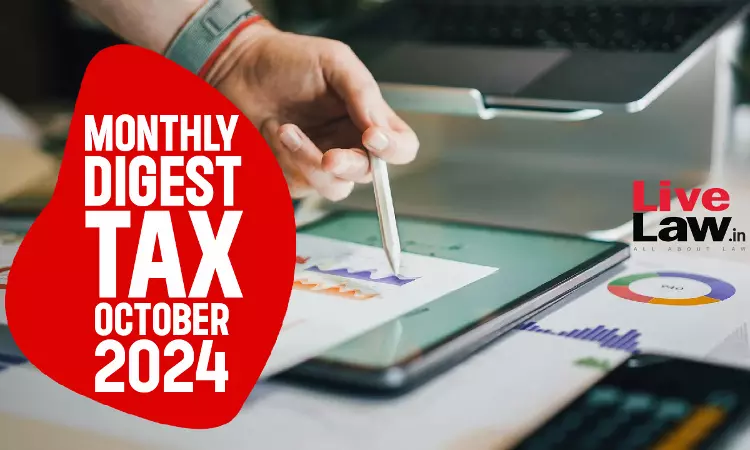Tax Monthly Digest: October 2024
Pankaj Bajpai
13 Nov 2024 9:00 AM IST
1. Kerala High Court Strikes Down Rule 96(10) of CGST Rules Retrospectively, Finds Them Ultra Vires To CGST Act The Kerala High Court struck down Rule 96(10) of the Central Goods and Service Tax Rules holding that it was ultra vires to the Section 16 of the Integrated Goods and Service Tax Act and was manifestly arbitrary. Justice P. Gopinath noted that Section 16 has not imposed...
Next Story



